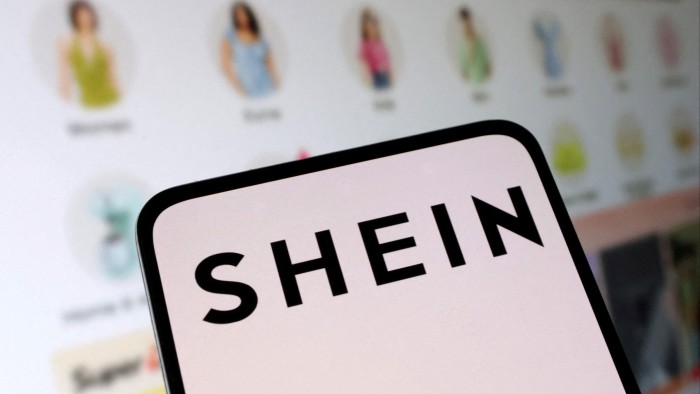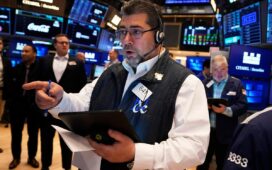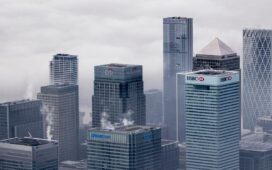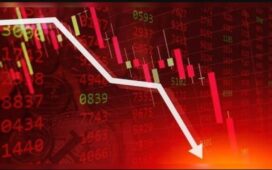This article is an on-site version of our FirstFT newsletter. Subscribers can sign up to our Asia, Europe/Africa or Americas edition to get the newsletter delivered every weekday morning. Explore all of our newsletters here
Good morning and welcome back to FirstFT Asia. In today’s newsletter:
-
Shein explores a US restructuring
-
Vietnam marks 50th anniversary of war with the US ending
-
Trade upheaval looms over Singapore’s election
Shein is exploring ways to restructure its US business in the event the Trump administration sticks with punitive tariffs on Chinese imports, which have jeopardised its plans for a London stock market flotation.
Tariff hit: The fast-fashion company’s US business — which accounts for about one-third of its $38bn in annual revenue — will come under heavy strain when a tax exemption known as “de minimis” is closed this week. That will leave Shein, which ships orders directly from Chinese warehouses to shoppers’ homes, paying tariffs of 120 per cent on the cheap clothes it sells to customers in the US, its biggest market.
The search for workarounds: Two people with knowledge of the company’s deliberations said one workaround under consideration was to divert production for the US market to countries outside China. Shein has some manufacturing capacity in Brazil and Turkey, but it is doubtful its supply chain in these countries would ever reach a scale to match Shein’s operations in China, where it has a network of 7,000 suppliers. Shifting production elsewhere would result in a significant reduction of supply into Shein’s US business, according to industry insiders.
Any effort to cope with President Donald Trump’s tariffs by moving manufacturing out of China might also attract the ire of the government.
London IPO plans in jeopardy? If tariffs did inflict lasting damage on Shein’s US business the company would be forced to push back its widely anticipated London IPO, initially scheduled for the first half of this year. “Internally we are all focused on figuring out how to deal with the tariff situation at the moment. Before we have clarity on that, no one can even start to think about the IPO,” said one executive who declined to be named due to the sensitivity of the issues. Read the full story.
Here’s more news on the US-China trade war:
-
Huawei: The tech giant has started the delivery of its advanced AI chip “cluster” to Chinese clients who are increasing orders after being cut off from Nvidia’s semiconductors because of Washington’s export restrictions.
-
Chinese economy: China’s manufacturing activity contracted by the most since 2023 in April, according to an official survey, in an early sign of the economic impact from Trump’s trade war.
-
US GDP contracts: The US economy shrank by an annualised 0.3 per cent over the first quarter, as companies responded to Trump’s trade war by rushing to import goods.
Here’s what else we’re keeping tabs on today:
-
Economic data: South Korea publishes April trade figures.
-
Bank of Japan: The central bank is expected to hold interest rates steady when it announces its monetary policy decision, according to Reuters. The BoJ will also publish its economic outlook report.
-
Results: Amazon, Apple, Mitsui and Sumitomo are among the companies reporting.
How should central banks navigate the new world order? Pose questions to Chris Giles and other FT experts about monetary policy, and have them answered in a live Q&A next Wednesday.
Five more top stories
1. US secretary of state Marco Rubio urged India and Pakistan to “de-escalate tensions” after a deadly attack in Indian-administered Kashmir last week, highlighting Washington’s growing alarm about the frictions between the nuclear-armed neighbours. Rubio’s appeal came in separate phone conversations with senior officials in India and Pakistan yesterday.
-
India-UK trade talks: The two countries are locked in the final stages of negotiating a free trade deal with both sides wrangling over key demands in London this week, according to people briefed on the talks.
2. The US and Ukraine signed an “economic partnership” deal yesterday that will give Washington access to the country’s critical minerals and natural resources, ending weeks of fraught negotiations. The agreement will establish a “reconstruction investment fund” for Ukraine that Trump had insisted on as a way to repay America for its past aid to Kyiv. Here are more details.
-
More Ukraine news: The EU is preparing a “plan B” on how to keep economic sanctions against Russia should the Trump administration abandon Ukraine peace talks and seek rapprochement with Moscow, according to the bloc’s top diplomat.
3. Vietnam’s top leader has hailed the country’s “victory of justice” and its rapid development, as the south-east Asian nation marked the 50th anniversary of the end of the war with the US. The celebrations, including a grand military parade in Ho Chi Minh City yesterday, come as Trump’s tariffs threaten economies including Vietnam, which in recent years has become a critical link in global supply chains.
4. Chinese investors are piling into gold funds at a record rate. Inflows into gold exchange traded funds in China total 70 tonnes — or about $7.4bn — so far this month, more than double the previous monthly record, according to the World Gold Council. Here’s what’s driving the buying frenzy.
5. Microsoft posted better than expected quarterly earnings yesterday, as its cloud division reported robust sales growth on strong demand from AI-related services. The group’s cloud unit, known as Azure, posted a 20 per cent increase in revenues from a year ago to $42.4bn.
News in-depth

Singapore’s election outcome on Saturday is set to provide a rare moment of relative certainty for its citizens, as Prime Minister Lawrence Wong is widely expected to extend the dominance of his People’s Action party with its 16th consecutive victory. But much else is in flux for Singaporeans as Trump’s trade war changes the world on which the country has built its wealth since independence 60 years ago.
We’re also reading . . .
Chart of the day
India’s Prime Minister Narendra Modi this month hailed a “new energy” in New Delhi’s relationship with Latin America, as the world’s fastest-growing major economy tries to deepen ties with the continent to secure the minerals it needs to meet its ambitious green energy targets.
Take a break from the news
. . . and read about the English town that can’t wait to be a theme park. The sixth Universal Studios branded theme park is coming to Bedford, and residents are overwhelmingly supportive of the plan, despite the widespread disruption expected.





